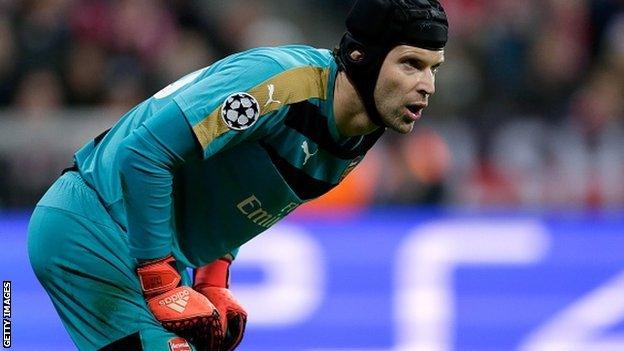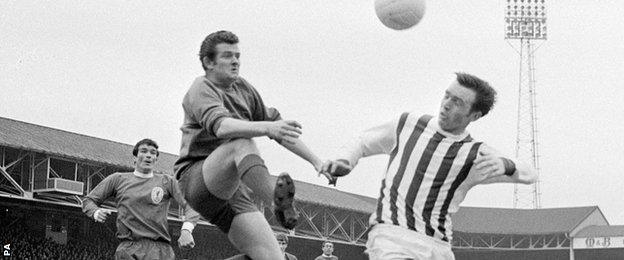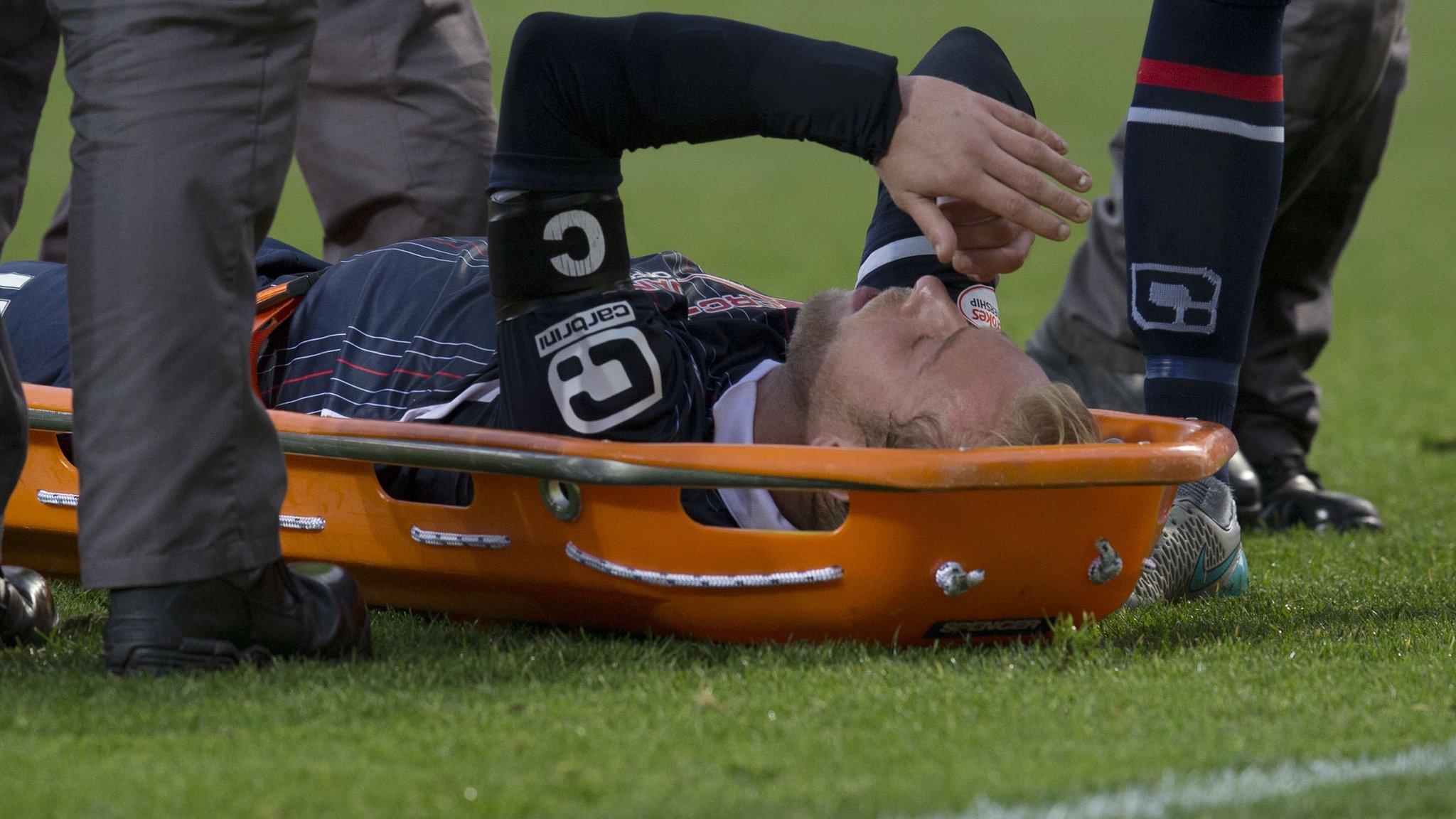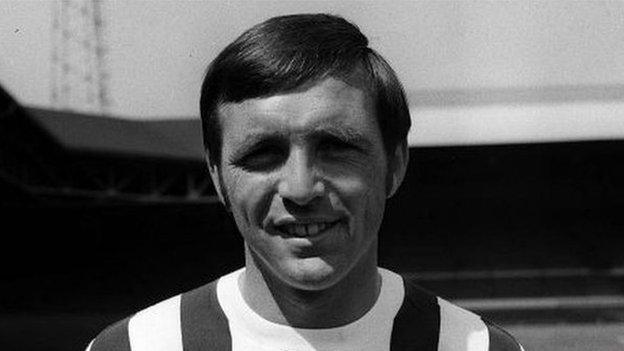Concussion: 'If in doubt, sit them out' guidelines from FA
- Published

Arsenal keeper Petr Cech, who has worn protective headgear since fracturing his skull in 2006, has had concussions
The Football Association has issued new guidelines to all involved with the game on how to deal with concussions.
They provide information, external on symptoms, and how quickly a player should return.
Broadly speaking, an adult should sit out at least a week and only return when signed off by a doctor, and under-18s should rest for at least two weeks.
"They are a fantastic development and hopefully have the potential to impact on sport in England as a whole," head injury expert Dr Willie Stewart said.
The safety-first guidelines, developed by an expert panel set up in April, were prompted by rising fears over head injuries across all sports.
"The guidelines clearly demonstrate the FA's strong leadership around this issue and provide clear information on the immediate management of the injury around the simple principle of 'if in doubt, sit them out'," Stewart added.
Stewart, a consultant neuropathologist at Glasgow's Queen Elizabeth University Hospital, was one of eight leading concussion experts on the FA panel, external but he has not always been so complimentary of football's efforts in this area.
In May, he described Chelsea's treatment of a head injury suffered by Brazilian midfielder Oscar as "completely unacceptable"; a comment that angered, external the Premier League champions.

The coroner found that repeated minor traumas had been the cause of Jeff Astle's death, as the leather footballs used at the time were considerably heavier than those in use now
The FA, like every national governing body of a contact sport, is particularly sensitive to the issue of concussion, , externalnot least because of the campaign, external led by the family of former England and West Bromwich Albion forward Jeff Astle, who died in 2002 aged 59 from a brain condition more traditionally associated with boxers.
Speaking earlier this year, the FA's head of performance services, Dave Reddin, said football had been slow to respond to concerns about the long-term effect of head injuries.
But Reddin, who previously worked with the England rugby union team and Great Britain Olympic squad, said the new guidelines represented the very latest in thinking about concussions from around the world.
"We have been very fortunate to have had the combined expertise of an international panel in reviewing and revising our guidelines," Reddin said.
"This allowed us to take viewpoints from inside and outside the game, especially referring to those sports with a longer period of experience in dealing with concussion."
Stewart and Dr Simon Kemp, the Rugby Football Union's chief medical officer, brought expertise from rugby union, while Boston University's Dr Bob Cantu has been central to the huge strides the leading US sports have made in dealing with their treatment of head injuries.
As well as these new guidelines, the panel has also been identifying some areas of research that football should pursue, including some "research questions" for the game's global governing body Fifa.
These are understood to include looking at risks associated with heading the ball, an area of particular concern in the United States, where the US Soccer Federation has just banned headers, external for under-10s and limited the amount of heading players aged between 11 and 13 can do in training.
- Published11 November 2015

- Published23 February 2015

- Published17 November 2014

- Published20 June 2016

- Published7 June 2019

- Published2 November 2018
